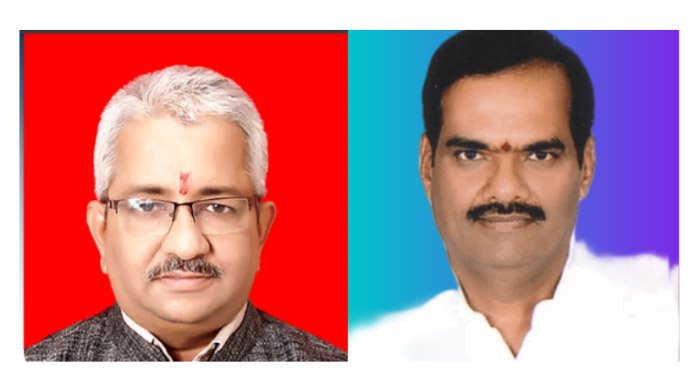With nearly 30,000 direct members and 1.5 lakh indirect members, the “Builders Association of India”, headquartered in Mumbai, is the only apex representative body of civil engineering construction companies and real estate construction companies in India. Founded in 1941 under the guidance and blessings of Brig. C. V. S. Jackson of Military Engineering Services in Pune, the Association is the oldest body representing and raising the concerns of engineering construction companies.
BAI is an affiliate of the International Federation of Asia and Western Pacific Contractors’ Association (IFAWPCA), which in turn is affiliated with the Confederation of International Contractors’ Associations (CICA), the world body of contractors and builders. Other country members of IFAWPCA are Australia, Bangladesh, Bhutan, Cambodia, Hong Kong, India, Indonesia, Japan, Malaysia, Maldives, Mongolia, Nepal, Philippines, Singapore, South Korea, Sri Lanka, Taiwan and Thailand.
BAI holds conferences, conclaves, and seminars on a regular basis to focus on the thrust areas where its action is needed. In one similar instance in the recent past, during the Covid pandemic, the BAI raised its voice against the increasing prices of cement and steel. “By holding talks with the government agencies, we could arrest the price which kept soaring continuously,” claims S. N. Reddy, President, BAI.
Though not connected with the homebuyers directly, S. N. Reddy explained that the BAI champions the cause of affordable housing by arresting cartelisation of the cement and other companies providing raw materials to the construction industry. Recently, BAI filed a case with the Competition Commission of India (CCI) against the cement dealers for increasing the prices and forming a cartel. The Association also networks with architects to address their challenges and issues.
“We have around 200+ local chapters and they might be directly in connection with their customers but the BAI does not get in contact with the end customers.”
When asked about any special initiatives for the welfare of construction labour, Sanjeeva Madhusudan, head of the BAI communications, said that the BAI has been fighting relentlessly for the implementation of the Provident Fund provisions for the casual and temporary construction workers, the majority of whom are illiterate and migratory. “We have information that the Central Provident Fund Commissioner is expected to come out with a comprehensive workable solution soon in this regard,” he said.
The BAI also filed a number of writs at various High Courts in the country on issues like VAT, Entry Tax, Service Tax, Sand Dredging, Labour Welfare Cess etc., he informed.
The BAI also claims the credit of being instrumental in the launch of the National Institute of Construction Management and Research (NICMAR), which has campuses in Hyderabad, Pune and Delhi. It is soon likely to get the status of a deemed university, Madhusudan said.
“We also are contemplating launching a new online platform called ‘BAI Learn’ (www.BAIlearning.in) to provide education and training resources for construction professionals. The platform is being designed with an aim to offer a wide range of e-learning programmes designed to enhance career development opportunities for individuals and at the same time, also improve the efficiency of construction companies.
The e-learning portal will have a variety of educational resources like free online material, live webinars, and on-demand or in-class training.
BAI also recognises the best-performing BAI centre in terms of membership retention, problem-solving, and other areas. The BAI also holds exhibitions and trade fairs in various parts of India.
BAI brings out a monthly journal, ‘Indian Construction’ to inform its members about the latest developments and trends in the construction industry apart from the progress of high-budget infra projects taken up across the country. Inventions and experiments in the construction industry also find a place for discussion in the journal.
Through the journal, the Association informs its members of innovations in the construction industry, modernisation of equipment, improvements in building techniques, and changing government policies that have a bearing on the construction industry.
BAI also holds a bi-annual three-day conference, the All India Builders’ Convention (AIBC), which is attended by professionals and intellectuals from the civil engineering and real estate construction industry. While the morning sessions are packed with technical sessions, exhibitions, panel discussions, and live demonstrations, the members unwind and network in the evenings.
When asked what he was predicting for the construction engineering business in the future, S. N. Reddy said: “There will be a rise in the use of drones, 3D printing and autonomous vehicles. By using these technologies, construction firms will be able to reduce delays in the delivery of projects. Errors and cost of production will also get reduced considerably.”
On the advancement in the construction industry, he said that new building materials are being invented to finish construction projects in a shorter duration of time. 3D printing will help in creating materials required if the project is too complex as it would be cost-effective. To overcome the labour shortage, robots and machines would be pressed into service to do repetitive and menial tasks. GPS trackers and biometric sensors are being used to make construction sites safer, he added.









